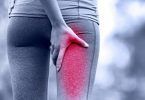ngaging in regular exercise is crucial for overall health, but recovery from sports injuries is essential to prevent long-term damage and setbacks. While sports injuries may be common, it’s important to approach them with caution to prevent long-term damage. This article provides valuable tips to aid in the recovery process after a sporting injury.
Best Practices for Recovery from Sports Injuries
Exercising regularly is the best way to stay healthy; it helps boost your brain and body, and it’s a fun and exciting hobby to engage in with friends. Unfortunately, when you play sports regularly or push your body beyond its natural limit, sports injuries are increasingly common. A sports injury is usually nothing to worry about, but it’s worth exercising caution if you do become injured so that your body will not be permanently damaged. It is common knowledge that when you become injured through sport, you should not continue to engage in that sport at the same intensity because you may hurt yourself even more. But then what should you do? Here are a few tips below to help you recover from a sporting injury with ease.
The Power of a Positive Attitude
It can be heartbreaking to obtain an injury doing the thing that you love the most, and it can affect you mentally when you become debilitated and unable to do your favorite hobby. That’s no reason to despair, though. What you need is a can-do attitude to recover as soon as possible. The mind and body work together towards healing, and if you begin this process with a positive attitude, it will be much quicker than if you refuse to accept the reality of the situation. At this moment, you must listen to your body while also taking time to relax. Mindfulness exercises such as meditation can be extremely beneficial while you recover from a sporting injury.
Understanding the Importance of Rest and Recovery
Recovering from a sporting injury requires giving your body ample time to rest and heal. Avoid the temptation to rush back into physical activity too soon, as this can exacerbate the injury and prolong the recovery process. Adequate rest allows your body to repair damaged tissues and regain strength. Listen to your body’s signals and follow the guidance of your healthcare professional regarding the appropriate duration of rest for your specific injury.
How Nutrition Supports Recovery from Sports Injuries
Proper nutrition plays a crucial role in the healing process. Focus on consuming a well-balanced diet rich in essential nutrients, including protein, vitamins, and minerals. Protein aids in tissue repair and regeneration, while vitamins and minerals support overall immune function. Additionally, staying hydrated is essential for optimal recovery. Drink plenty of water throughout the day to aid in flushing out toxins and promoting efficient healing.
Mental and Emotional Well-being
Sporting injuries can take a toll on your mental and emotional well-being. It’s important to address these aspects of recovery alongside the physical healing process. Stay connected with supportive friends, family, or a sports injury support group. Engage in activities that uplift your mood and help you stay positive. Consider consulting with a mental health professional if you find it challenging to cope with the emotional impact of your injury.
The Role of Physiotherapy in Sports Injury Recovery
Book an appointment with a physiotherapist at the next available opportunity so that you can receive professional advice about your injury. Even if it seems small, when injuries go untreated, it can result in tissue damage or a fracture. Both of these you want to avoid at any cost. The only way to know what is wrong with your body is to go to a specialist and seek their advice. Although this may seem like an inconvenience, it is highly preferable to worsening your injury.
In the rare instance that your physiotherapist acts in a neglectful or unprofessional manner and hurts your body’s healing process, it is advised that you claim compensation via a specialist in medical negligence, which you can access via the-medical-negligence-experts.co.uk to consider your options.
Maintaining an Active Lifestyle
Your sports injury may ultimately put you off any type of sport or exercise because the pain was so inconvenient and disruptive to many other areas of your life – not least your sleeping pattern, which can often be altered by pain during injury. You mustn’t stop exercising just because you have had one negative experience, though.
Suitable exercises, while you have an injury, include:
- Strength exercises like yoga and Pilates
- Low-impact exercises such as swimming
- Walking, cycling and generally staying active in a low-intensity fashion
- Doing stretches in the gym with special injury equipment
Sporting Injury Recovery Tip: Prioritize Sleep and Stress Management
Quality sleep is vital for the body’s healing process. Aim for adequate sleep each night to support recovery and promote overall well-being. Additionally, practice stress management techniques such as deep breathing exercises, meditation, or engaging in hobbies you enjoy. Minimizing stress levels can positively impact your recovery journey.
Conclusion
A sports injury can disrupt your exercise routine and impact various aspects of your life. However, with a positive attitude, seeking professional advice, and maintaining an active lifestyle, you can overcome the challenges and embark on a successful recovery journey.







